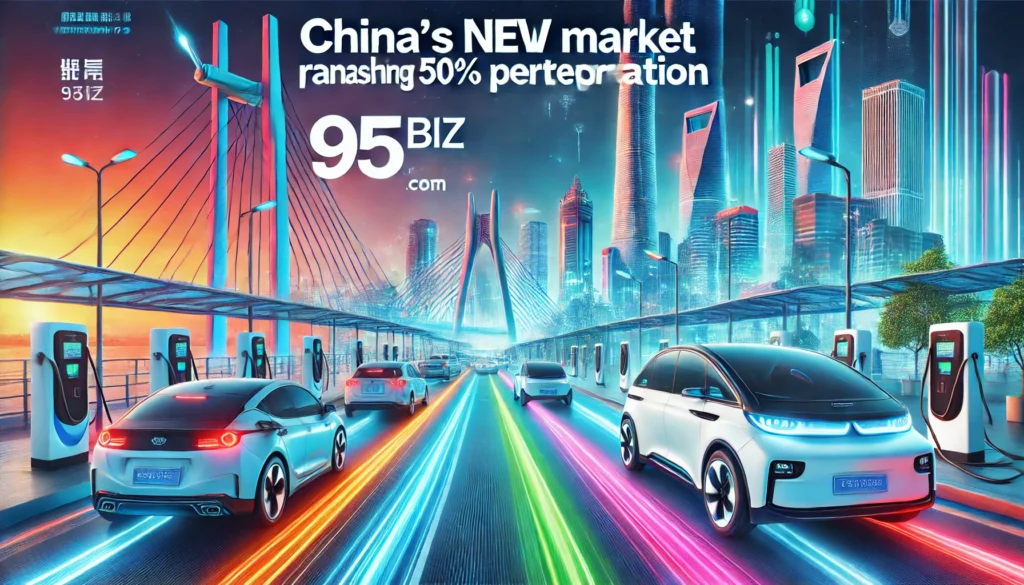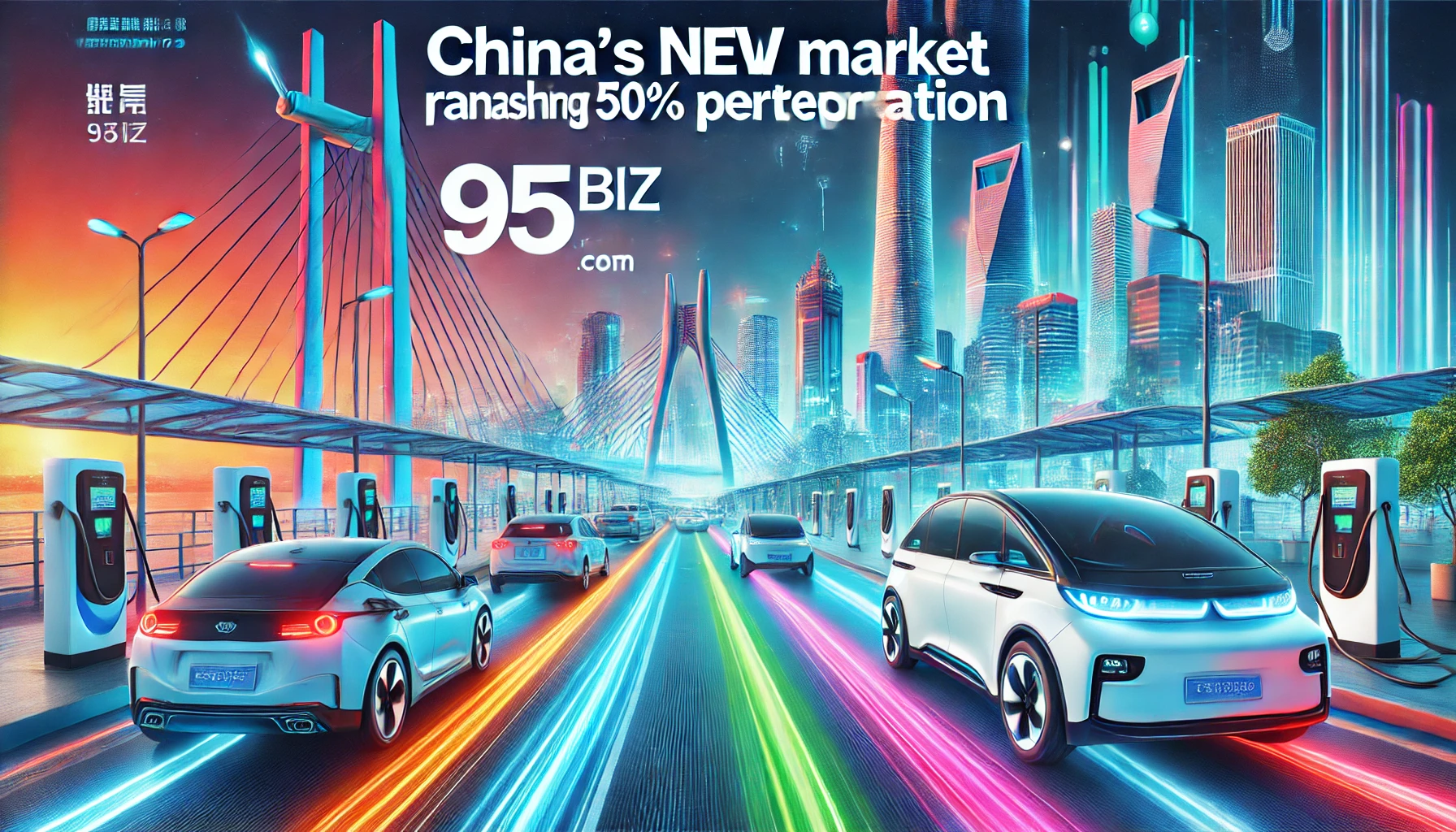China’s NEV Market Surpasses 50% Penetration
China’s New Energy Vehicle (NEV) market has reached a historic milestone, with NEVs making up over 50% of all retail car sales for the first time in July 2024. According to the China Passenger Car Association (CPCA), NEVs accounted for 51.1% of total market share, equating to 870,000 units sold. This achievement follows a pattern of strong monthly sales, only second to December 2023’s 947,000 units. Despite some fluctuations earlier in the year, China’s NEV market demonstrates robust growth and leadership in global NEV adoption.
| Key Aspect | Details |
|---|---|
| Government Support | Strong policies, subsidies, tax incentives, and stringent emission regulations by the Chinese government. |
| Infrastructure Development | Rapid expansion of charging infrastructure across urban and rural areas. |
| Technological Advancements | Innovations in battery life, charging times, and vehicle performance by Chinese NEV manufacturers. |
| Economic Factors | Rising fuel costs and increased environmental awareness among consumers. |
| Global Implications | China’s success influencing global NEV trends, particularly in Europe and North America. |
| Challenges | Sustainability of government support, battery supply, and environmental impact of battery production. |
Key Factors Driving China’s NEV Market Growth
- Government Support: Strong policy support from the Chinese government has played a crucial role. Subsidies, tax incentives, and stringent emission regulations have encouraged both consumers and manufacturers to pivot towards NEVs.
- Infrastructure Development: China has rapidly expanded its charging infrastructure, making it more convenient for consumers to own and operate NEVs. The extensive network of charging stations across urban and rural areas has alleviated range anxiety and boosted consumer confidence.
- Technological Advancements: Chinese NEV manufacturers are at the forefront of innovation, offering advanced technologies such as longer battery life, faster charging times, and improved vehicle performance. This technological edge has made NEVs more attractive to consumers.
- Economic Factors: Rising fuel costs and increased environmental awareness among Chinese consumers have further fueled the demand for NEVs. As traditional fuel prices continue to rise, the cost-benefit ratio of owning an NEV becomes more favorable.

Global Implications
China’s success in the NEV market is setting a precedent for other countries to follow. As the largest automotive market in the world, China’s shift towards NEVs is likely to have a significant impact on global automotive trends. Other countries, particularly those in Europe and North America, are closely observing China’s strategies and policies to replicate its success.
Challenges Ahead
Despite the impressive growth, the NEV market in China faces several challenges:
- Sustainability of Government Support: Continued reliance on government subsidies may not be sustainable in the long term. The market needs to achieve a balance where NEVs can thrive without heavy financial support from the government.
- Battery Supply and Environmental Impact: The increasing demand for NEVs raises concerns about the sustainability and environmental impact of battery production. Ensuring a steady supply of raw materials and addressing the environmental footprint of battery manufacturing are critical challenges.
China’s milestone of achieving over 50% NEV market penetration marks a significant achievement in the global automotive industry. It highlights the effectiveness of government policies, infrastructure development, and technological advancements. As China continues to lead the NEV market, other countries can learn valuable lessons from its approach to accelerate their own transition to sustainable mobility.
| Participant | Contact Details & Address |
|---|---|
| BYD | No. 3009, Baishi Road, Nanshan District, Shenzhen, China. Email: info@byd.com |
| NIO | Building 20, No. 56 AnTuo Road, Jiading District, Shanghai, China. Email: contact@nio.com |
| Xpeng Motors | No.8 Songgang Avenue, Songshan Lake, Dongguan, Guangdong, China. Email: service@xiaopeng.com |
| SAIC Motor | 489 Weihai Road, Jing’an District, Shanghai, China. Email: saic@saicmotor.com |
| Geely Auto | 1760 Jiangling Road, Binjiang District, Hangzhou, China. Email: global@geely.com |
For further details, visit the original article on Automotive World.

